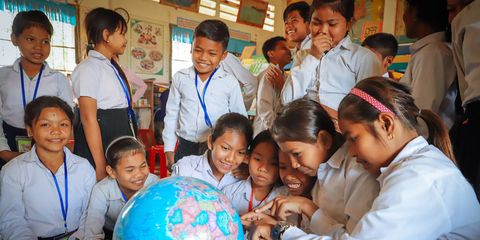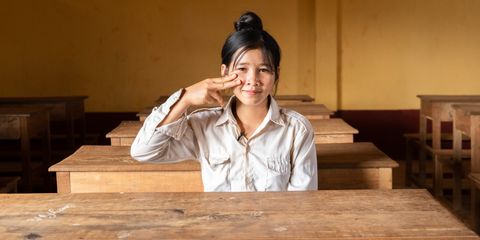Eighteen-year-old Phally has been studying electronics for 4 months to enhance her remote community, which faces electricity shortages. She now teaches other girls so they don’t need to rely on men for support.
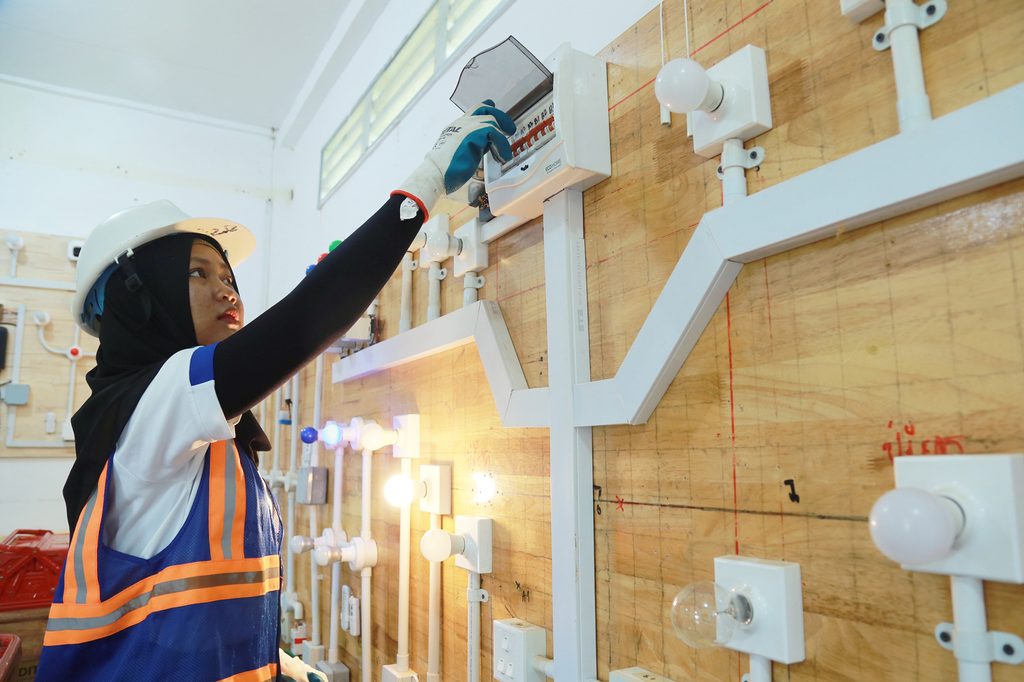
Phally, lives with her parents in a district in the Stung Treng Province. Although some community members have invested in solar panels, Phally’s family cannot afford them. Consequently, she relies on candles to study during the evenings.
Studying electronics
Phally, an Islam girl, is the youngest child in a family of farmers who plant cassava and green peas. She is also the only child in her family to complete high school, as her 4 older siblings are already married. Phally dreams of pursuing a bachelor’s degree once she passes the national exam. However, financial constraints led her to volunteer at a local NGO to prevent child early forced marriages, aiming to save money for her studies. “When I see students at the university, I feel sad and want to join them, but now I work to save money,” said Phally.
At 17, Phally was forced by her parents to marry but refused, expressing her desire for higher education and financial independence before marriage.
“I was shocked when my parents insisted on marriage, especially as I work to prevent early forced marriages,” she explained with a sad voice. “I continued explaining that while someone may care for us now, the future is uncertain.”
Her parents eventually agreed to let Phally decide when to marry.
In early 2024, Phally received information about vocational training, particularly electronics, from a friend who studies at her local vocational centre. She asked her mother for permission to register.
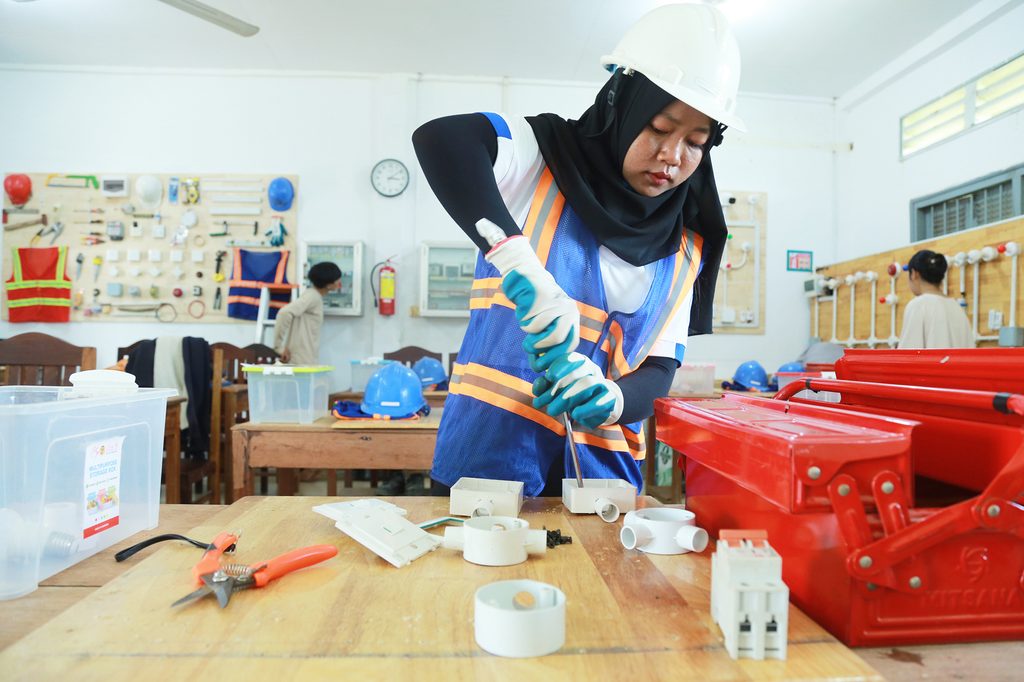
“At first, my mom didn’t agree, worried about the safety risks related to electrical shocks. She asked why I didn’t study a more traditional ‘girl’ skill,” Phally recalled with a laugh. “I told her I love this skill and that jobs should not be segregated by gender. I heard that the teacher asks boys to carry heavy things.”
Phally gathered information from senior students, especially female students studying electronics, who encouraged her to pursue her interest. Finally, she enrolled in the electronics course and is happy with her decision. She studies theory in the morning and practices in the afternoon, enjoying every moment.
In group work, the vocational training teachers mix boys and girls to support each other, with boys carrying heavy items to avoid discrimination. There are only 4 girls among 22 students in her class. After 4 months of study, Phally became a staff member at the training centre, working as an administrator and assistant electronics teacher.
Phally teaches other young people
“I also want to teach girls in my community electronics skills so they can fix small problems at home and not rely solely on men for support,” Phally explains.
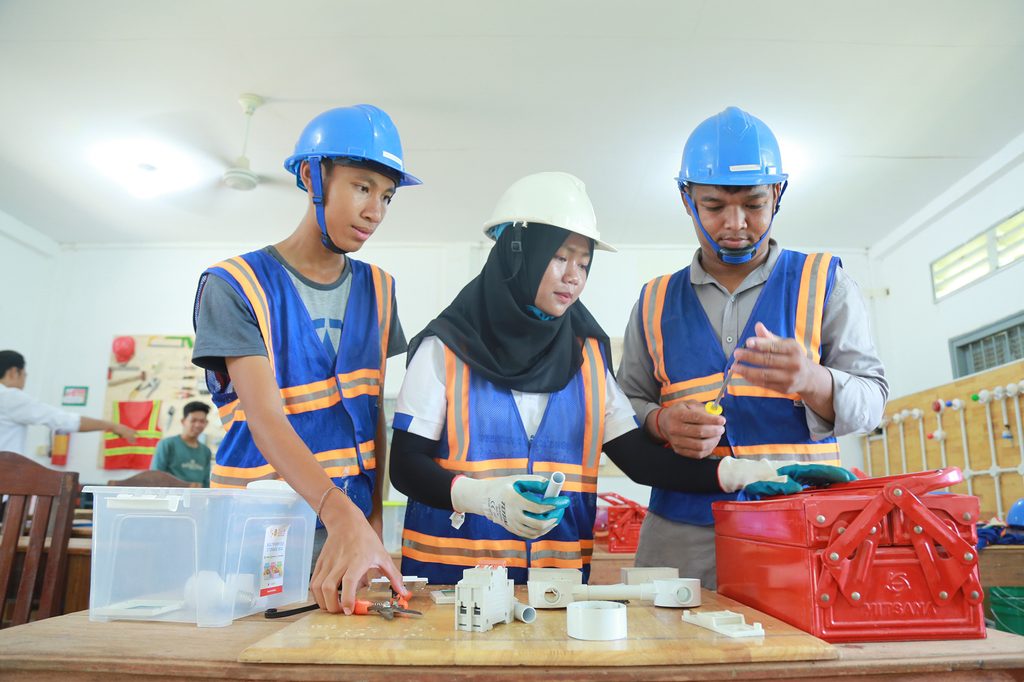
“I also want to teach girls in my community electronics skills so they can fix small problems at home and not rely solely on men for support.”
Phally
Phally volunteers to teach out-of-school children whose parents have migrated for work. She teaches 2 shifts, accommodating 60 children after her studies and work hours, using her own money to buy her students’ notebooks, books, and refreshments. “Some parents who can afford it support me with motor gasoline; if not, it’s okay,” she said.
Phally is proud of her achievements and hard work, and her mother shares in her happiness. After completing her training, Phally plans to run a small shop selling electronic devices.
How Plan International Cambodia helps
Plan International Cambodia and its partner, Watanakpheap, are implementing a three-year project, “Time to Act,” funded by the Federal Ministry of Economic Cooperation and Development in Stung Treng Province. The project aims to reduce child, early, and forced marriage and unions and child pregnancy in disadvantaged and remote areas of North-Eastern Cambodia. It supports vulnerable girls at risk of or experiencing early forced marriage by providing economic independence opportunities through vocational training, internships, job placements, and business start-ups.

